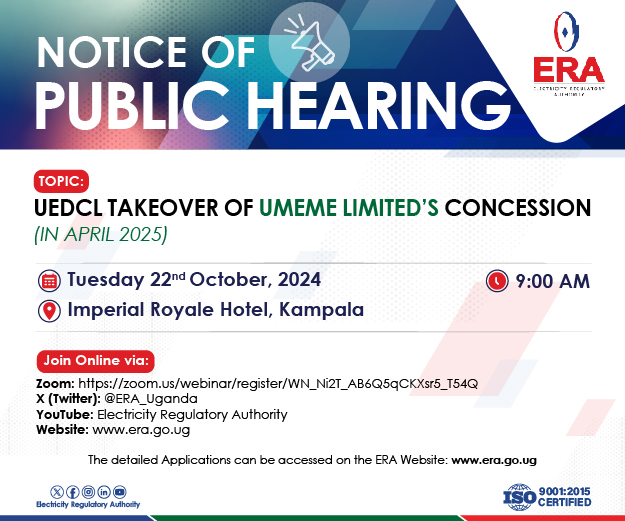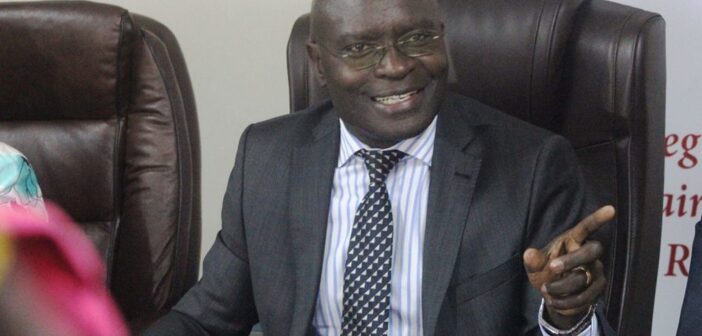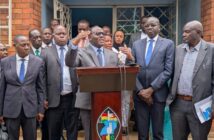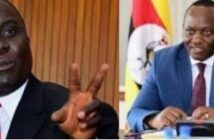The Electoral Commission (EC) has raised concerns over a Shs623.9 billion funding gap that threatens the successful conduct of Uganda’s 2026 general elections.
Presenting the Budget Framework Paper for the Financial Year 2025/26 to the Committee on Legal and Parliamentary affairs , the EC Chairperson, Justice Simon Byabakama, called on Parliament to address the financial shortfall urgently.
Byabakama emphasised that the upcoming financial year is critical, as it represents the final phase of implementing the General Elections Roadmap. He noted that polling is scheduled to take place between 12 January and 9 February 2026.
“This financial year is unique in the history of the Electoral Commission because it coincides with polling for the 2025/26 General Elections. Ensuring the success of these elections requires all planned activities to be adequately funded and implemented on schedule,” Byabakama said.

Among the EC’s proposed activities is the nomination of presidential candidates, slated to take place at the Commission’s planned new headquarters in Lubowa. The chairperson highlighted the importance of the new facility in reducing costs associated with hiring venues for critical election events, including the declaration of results. However, the Shs62 billion required to complete the Lubowa project remains unfunded.
“The construction of our headquarters in Lubowa is not just a priority but a necessity. This project will provide a suitable environment for the nomination of presidential candidates and the declaration of election results. Unfortunately, no funds have been allocated for this in the 2025/26 financial year,” he added.
The chairperson also outlined other critical activities that remain unfunded, including voter education campaigns, production of ballot papers, and the recruitment and training of polling officials. According to the Commission, these activities are integral to delivering free and fair elections.
Justice Byabakama further revealed that the Commission requires Shs450.2 billion for Phase III of the General Elections Roadmap, which covers polling day activities and the tallying of results. Despite its significance, no provision has been made for this phase.

“The Commission has been allocated Shs140.8 billion for the financial year, yet our total requirement is Shs764.7 billion. This shortfall severely hampers our ability to execute our mandate as stipulated under Article 61 of the Constitution,” he explained.
In addition to election-related challenges, Justice Byabakama noted delays in funding for ongoing projects, such as the construction of regional offices and the wage enhancement for staff. He cautioned that these gaps could undermine the EC’s ability to deliver on its constitutional obligations.
The Commission’s report also highlighted its achievements, including the demarcation of electoral areas and the reorganisation of polling stations.
Hon. Abdu Katuntu, the Bugweri County MP cautioned the commission not to associate itself into activities that put the institution in disrepute.
“Do not allow them to usurp your roles, tell your officers to be as independent and as professional as they can be, even at that level if there are problems they consult you at headquarters,” Katuntu cautioned.
MPs following the presentation by EC Chairperson
Hon. Patrick Nsanja, the Ntenjeru County South MP equally questioned the independence of the EC especially since they involve security apparatus like District Internal Security Officers (DISO) and Gombola Internal Security Officer (GISO) during the elections.
He also sought clarification on why the Commission was not allowing prisoners and people in the diaspora to vote.
Hon. Robert Ssekitoleeko (NUP, Bamunanika County, Luweero) questioned what the EC will do with the several Identity cards of Ugandans which have expired while Hon. Medard Sseggona the MP, Busiro County East asked the EC to devise strategies against electoral violence.
Hon. Santa Alum (UPC, Oyam District Woman Representative) tasked the commission to up its game when it comes to sensitisation and voter education stating that many communities in the north are not getting the messages.
Justice Byabakama responding to the concerns on prisoners and diaspora said that the Ugandan laws does not accept for voting outside of Uganda and also in restricted areas like prisons.




